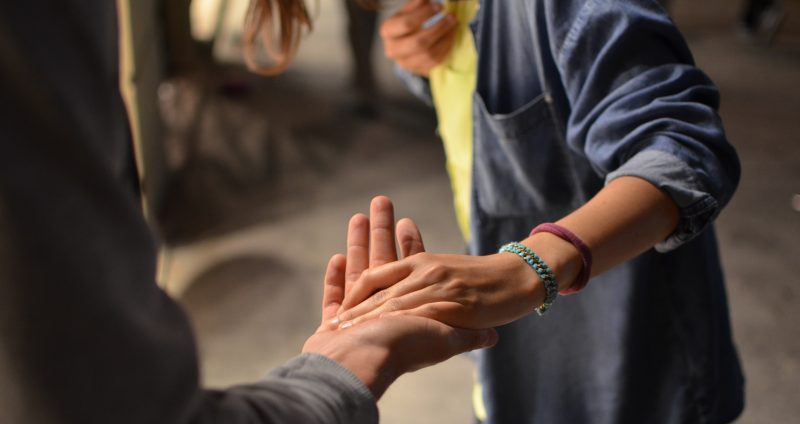The year 2020 will forever be remembered as the time when the world stopped and changed forever. We realized we took simple things for granted, such as traveling, dining in restaurants and attending the latest concerts.

Although the pandemic gave some people time to finally tackle personal goals that had been put off or spend much-needed time with their families, others were not so lucky. For instance, millions of people lost their jobs, shelter and loved ones to a virus that has not been regulated by top specialists yet.
As a public servant, this pandemic has been very troubling because it is a part of my duty and passion to recognize the crucial needs of the people, on and off the clock. COVID-19 has caused many people to suffer from isolation due to the lengthy lockdown measures or dealt with physical/psychological stressors caused by the unpredictability of current events. As a result, many have fallen into depression, turned to alcoholism/drugs, or channeled their frustrations into anger.
Consequently, this virus has influenced another global problem that has gotten out of control. This crisis is crucial to shed light on, especially during this time, because the population often affected is in a very vulnerable position. Not only are they fighting for the safety of their loved ones, their well-being and for sanity during a time of uncertainty due to COVID-19, they are also fighting to stay safe in their own homes. It is our job as public servants to adapt to the new normal and ensure we bring awareness to and help prevent the spread of domestic violence.
There has been a significant increase in domestic violence cases, specifically among women and children since the beginning of the COVID-19 pandemic. The popular British investigative show, Panorama Programme, reported statistics collected by UK police that revealed that there were domestic violence complaints placed every 30 seconds during the first seven weeks of the shutdown.
The increase in domestic abuse during the pandemic is mainly due to the fact that it has become harder for victims to have physical distance or escape from their abusers as a result of the worldwide lockdown. Furthermore, many safehouses have been following the CDC guidelines and stopped accepting new clients to prevent overcrowding and spreading the virus within the facilities.
Shelters that remained open to existing families during the pandemic struggled to keep everyone consistently six feet apart and feared the virus’s spread might be inevitable. To help prevent this from happening, many sites have reduced the staff’s physical presence in the building, and enforced a work from home order to create more space for the families that desperately need protection.
Whether or not you are directly involved with providing domestic violence services, every public servant can play a role in meeting this need.
3 Steps for Survival
In these unprecedented times, domestic violence awareness is critical. Below are three crucial steps that can help save you or a loved one’s life during the pandemic:
1. Create a Safety Plan: A safety plan is the most crucial step for survival when suffering from an abusive relationship. This strategy should include:
- Ways to remain safe during the relationship. For instance, identify safe areas you can go to for protection when your partner is having a violent episode.
- A list of the abuser’s triggers/red flags. It is important to be aware and stay alert when your significant other shows early signs of anger or violence. These warning signs will help determine when it is time to put the safety plan in motion.
- An escape plan. It is necessary for victims to strategize a thorough plan before fleeing, for several reasons. Most substantially, a victim may not be able to successfully escape without their official documentation (birth certificate or passport), money, spare keys, etc. When planning to run, it is important to have these items stored in a secured place that is easily accessible, so they can be quickly gathered at any moment.
2. Find Support: Connect with professional health services that can provide emotional support and guidance during the pandemic. A few examples include:
- Help hotlines
- Peer support groups
- Local emergency safe housing shelters
- Therapy
- Emergency dispatcher, 911
In cases where victims are not able to have privacy, some resources offer their services virtually through online support groups or via counseling through text messages. In fact, the pandemic has influenced many health professionals to offer free virtual services, so that there are fewer obstacles to get through to receive professional support/help and, at the same time, avoid contracting COVID-19.
While the lockdown orders are in place, it is also extremely crucial that victims focus on solidifying a support group. These people could include family members, friends, trusted co-workers or neighbors. This is important because the support group might be able to offer safe spaces if an escape plan is put into action and there are restrictions at shelters because of COVID-19. Creating code words among the support group can help identify when the victim is in danger or attempting to escape.
3. Use Decisive Thinking Skills: Be ready to act at a moment’s notice. Many domestic violence support experts suggest it is wise to practice escaping before actually executing the plan. That way when it is time to leave, the victim will be able to remain calm and carry out the plan effortlessly because they will already know exactly what to do.
Helpful Resources
Victim Assistance Sites
- https://mpdc.dc.gov/page/domestic-violence-resources
- https://www.thehotline.org/
- https://dcvictim.org/types-of-crime/domestic-violence/
- https://dccadv.org/
Local Safehouses (in Washington, DC)
Briana Richardson-Jones serves as a Justice Department (DOJ) program analyst. Before becoming a federal employee, she pursued a Bachelor’s of Arts in English and a Master’s of Science in criminology with a public policy concentration. She believes she can help prospective and new employees navigate government efficiently while currently doing the same. Briana has discovered creative tips that can help others “work smarter” in the future. She also plans on combining her love for writing and criminal justice to educate readers about current events and community issues affecting people worldwide.


Thanks for raising awareness about this issue.
Thank you for reading! I’m glad you enjoyed the topic. I hope this information can helpsomeone during this time.